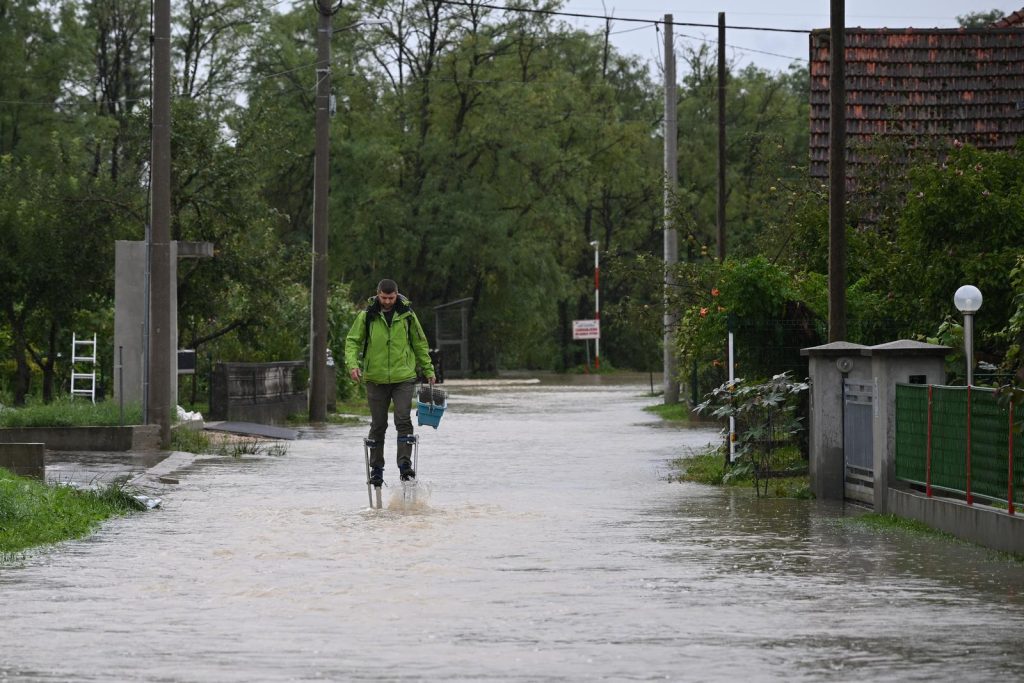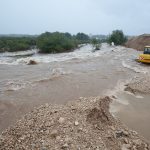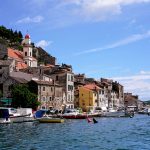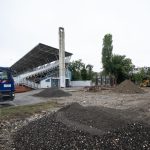August 9, 2023 – Slovenia thanks Croatia for the help in manpower and equipment that Croatia immediately sent during the unprecedented floods last week. Six people died, and the damage will be counted in billions of euros.
“On behalf of the Slovenian government, on behalf of Slovenia, I sincerely thank Croatia, the Croatian government, and the Croatian people for their solidarity and selfless help,” said Slovenian head of diplomacy Tanja Fajon after meeting with her Croatian colleague Gordan Grlić Radman in Donja Bistrica near Lendava, writes Index.
Croatia was the first to send an aid helicopter
“Croatia was the first to send emergency aid with a military helicopter, so it was possible to protect people from the flooding of the Mura River. Without it, the disaster would have been even bigger. Today, another Croatian aid is on its way, 17 soldiers and construction materials,” added Fajon.
It was in the town of Donja Bistrica on the Mura River, where the ministers met, that the helicopter and eight soldiers sent by Croatia participated on Sunday in transferring concrete blocks to create barriers to prevent river flooding.
On Tuesday, another 17 members of the Croatian Army were sent to Slovenia with engineering machines.
They will be deployed where Slovenia needs them the most, said the head of the Croatian diplomacy, announcing that Croatia has also offered a special type of modern bridge, up to 40 meters long, which can be assembled quickly.
For life to return to normal, Croatian highways will also send their people. The Croatian Red Cross, Caritas, and the fire brigade have also been activated, the Croatian minister said.
He expressed regret for the catastrophic flood, unprecedented in Slovenia’s modern history, where more than two-thirds of the country was flooded.
Consequences of catastrophic floods
Since Friday, when the floods began, six people have died, and thousands have been evacuated from their homes across northwestern and central Slovenia.
Cities were cut off; communications were cut off; landslides were triggered, bridges collapsed, and some people were left without drinking water and electricity.
Croatia immediately came to the rescue, as Slovenia did when earthquakes hit Zagreb and then Banija, the ministers emphasized.
As for the damage from the floods, it is still being assessed, and that process will continue, Fajon said, adding that “according to the first estimates, we can talk about several billion euros of damage. This will put Slovenia in a position where the EU solidarity mechanism alone will not be enough, but we will try to find additional funds from various aid mechanisms”. Budgetary reserves and redistribution of funds will have to be used because the damage is enormous.
Slovenia turned to the EU and NATO for help, requesting technical assistance, primarily excavators, special vehicles for water flow regulation, as well as engineering teams. The list sent to the EU and NATO included 20 prefabricated bridges.
The country also asked NATO for five heavy military helicopters with a carrying capacity of at least five tons for transport and 200 soldiers to perform protection, rescue, and assistance tasks.










